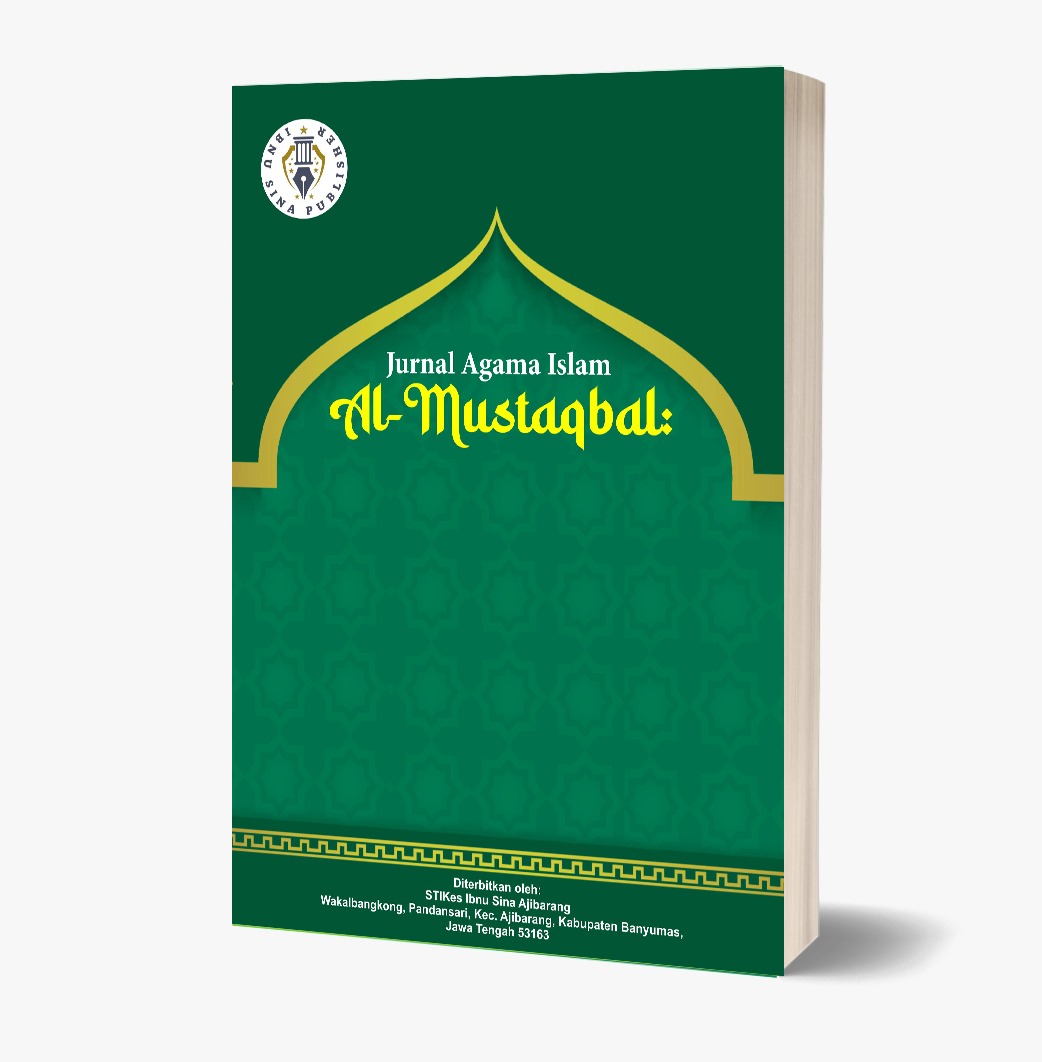Pendekatan Studi Hadis Tematik dengan Grounded Theory Anselm Strauss dan Barney Glaser
DOI:
https://doi.org/10.59841/al-mustaqbal.v2i3.206Keywords:
Anselm Strauss, Barney Glaser, Grounded Theory, Thematic HadithAbstract
This study explores the integration of the Grounded Theory (GT) approach, developed by Anselm Strauss and Barney Glaser, into thematic hadith studies (maudhū‘ī) as a methodological alternative for extracting meaning and constructing theory from hadith texts. This approach is considered capable of producing more contextual, relevant, and applicable understandings of contemporary social issues such as justice, leadership, and environmental ethics. By employing GT’s systematic stages open coding, axial coding, and selective coding hadith research goes beyond mere thematic classification and evolves into a theorization process directly rooted in hadith data. While GT offers advantages in flexibility and contextual depth, its application also faces epistemological and technical challenges, particularly in terms of data validity, interpretive bias, and the integration of modern qualitative methods with the principles of ulūm al-ḥadīth. Therefore, an interdisciplinary approach is necessary, involving collaboration between hadith scholars and social researchers, alongside strong mastery of qualitative methodology. In conclusion, GT is not a replacement for classical methods, but a complementary tool that broadens the horizons of hadith studies. By combining the strengths of the Islamic scholarly tradition and contemporary methodologies, this approach has the potential to enrich Islamic epistemology and to present hadith as a living, dynamic, and relevant source of values for modern society.
References
Atabik, A. (2017). Epistemologi hadis: Melacak sumber otentitas hadis. Religia, 13(2), 211–223. https://doi.org/10.28918/religia.v13i2.182
Ayu, I. G., & Budiasih, N. (2013). Metode grounded theory dalam riset kualitatif. Jurnal Ilmiah Akuntansi dan Bisnis, 9(1), 19–27.
Bado, B. (2021). Model pendekatan kualitatif: Telaah dalam metode penelitian ilmiah. Pengantar Metode Kualitatif.
Ban, M. N. (2014). Grounded teori dalam penelitian organisasi [Mata kuliah: Model Penelitian Kualitatif].
Damanik, K., Albahi, M., Islam, U., Sultan, N., Kasim, S., Islam, E. M., Kekayaan, R., & Kemiskinan, P. (2024). Peran zakat dalam ekonomi mikro Islam: Dampak pada kesejahteraan. Masharif Al-Syariah, 9(204), 3522–3529.
Emilia Sari. (2022). Langkah-langkah studi hadis tematik. Jurnal Al-Dirayah, 9(1).
Endah, P. T., Wilujeng, S. A., Rifka, F., Achmad, S., & Imbalan, Z. (2020). Pemanfaatan NVIVO dalam penelitian kualitatif (pp. 1–125).
Firdayanti, A., Aulia, L., Bukhori, A., Noviani, D., Raden, U., Palembang, F., Al-Qur’an, I., Indralaya, A.-I., Ilir, O., Selatan, S., Kunci, K., Hadist, S., & Sehari-Hari, K. (2023). Studi hadist dan pengimplementasiannya dalam kehidupan sehari-hari. Jurnal SOcial, Educational, Learning And Language, 1(2), 219–232.
Glaser, B. G., & Strauss, A. L. (1998). Grounded theory: Strategien qualitativer Forschung. Bern: Huber.
Haryoko, S., Bahartiar, & Arwadi, F. (2020). Analisis data penelitian kualitatif (Konsep, teknik, & prosedur analisis).
Ira, M. (2019). Studi hadis tematik. Al-Bukhari: Jurnal Ilmu Hadis, 1(2), 189–206. https://doi.org/10.32505/al-bukhari.v1i2.961
Karuntu, M. M., Saerang, D. P. E., & Maramis, J. B. (2022). Pendekatan grounded teori: Sebuah kajian prinsip, prosedur, dan metodologi. Jurnal EMBA: Jurnal Riset Ekonomi, Manajemen, Bisnis dan Akuntansi, 10(2), 1070–1081. https://doi.org/10.35794/emba.v10i2.41425
Kosasih, A. (2018). Pendekatan grounded theory (grounded theory approach): Sebuah kajian sejarah, teori, prinsip dan strategi metodenya. Prosiding Seminar Hasil Penelitian Dosen UNINDRA, 5, 122–132.
Kurnia Oktaria. (2023). Grounded theory. Jurnal Pendidikan Sains dan Komputer, 3(1), 31–39.
Mahera, R. M., & Jamal, K. (2025). Penerapan prinsip keadilan sosial dalam pengelolaan zakat, infak, dan sedekah: Perspektif ekonomi Islam kontemporer. Jurnal Ekonomi dan Sosial Islam, 2(1), 318–324.
Mohajan, H., Mohajan, D., & Mohajan, H. K. (2020). Memo writing procedures in grounded theory research methodology. Munich Personal RePEc Archive. https://mpra.ub.uni-muenchen.de/115246/
Nur, S., & Dzatun, S. (2024). Prinsip keadilan sosial dalam Islam: Studi teks Al-Qur’an dan Hadis. Jurnal Studi Islam dan Sosial, 4(1), 35–51.
Nurfaika Ishak. (n.d.). Pemimpin amanah dalam perspektif hadis tematik: Konsep ideal bagi Indonesia. Jurnal Al-Qadau, 11(1), 72–83. https://doi.org/10.24252/al-qadau.v11i1.49728
Rizqi, M., Deski, A., & Ikhwan, M. (2023). Kontekstualisasi pemahaman hadis. Istinarah: Riset Keagamaan, Sosial dan Budaya, 5(2), 98. https://doi.org/10.31958/istinarah.v5i2.10611
Ruslan, R., Khalifatun, U. N., & Rahman, U. (2023). Penelitian grounded theory: Pengertian, prinsip-prinsip, metode pengumpulan dan analisis data. Edu Sociata: Jurnal Sosial dan Pendidikan, 6, 699–708.
Saffinee, S. S. (2022). Muslim-friendly sustainable geo-tourism (MFS-GT): A qualitative study using the grounded theory. Revelation and Science, 12(1).
Sholehudin, M. (2018). Critical review disertasi Building an Islamic Psychology and Psychotherapy: A Grounded Theory Study. Jurnal Ilmu Sosial dan Humaniora, 15(2), 2017–2019.
Tri Wahyudi Ramdhan, M. Pd. I. (2016). Metode penelitian kualitatif (Teori, teknik, dan aplikasi) (pp. 1–23).
Triasa, A. R., Armi, M. I., Al Shaleh, M., & Hilmi, W. (2024). Dinamika pendekatan interdisipliner: Hambatan dan proyeksi dalam penelitian studi Islam. Jurnal Studi Islam dan Sosial, 6(2), 17–31. https://doi.org/10.61941/iklila.v6i2.177
Ulfah Zakiyah. (2021). Metode pemahaman hadis dengan pendekatan sosio-historis (Studi atas pemikiran Said Agil Husin Al-Munawar). AL-ISNAD: Journal of Indonesian Hadist Studies, 2(1), 16–25.
Umanailo, M. C. B. (2018). Teknik praktis grounded theory dalam penelitian kualitatif. Universitas Iqra Buru, April, 127. https://doi.org/10.13140/RG.2.2.18448.71689
Wahyuddin, S., Heryana, N., Yusmah, Z., Zulkarnaini, S., Atichasari, A. S., Simarmata, N., Hadawiah, Triwijayati, A., & Asroni, A. (2023). Metode riset kualitatif (Vol. 156).

















